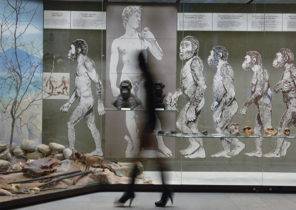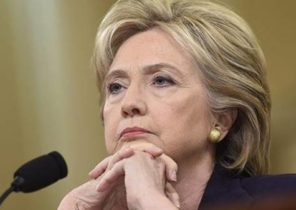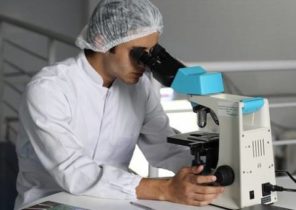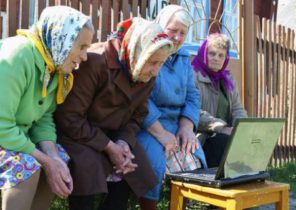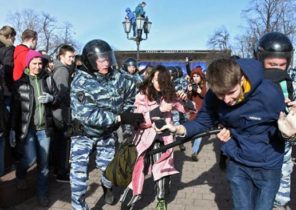When last week American and Russian negotiators met in Vienna to discuss the extension of start I, the last of the current bilateral agreement on nuclear arms control, American officials surprised their colleagues with a secret briefing about a new, frightening nuclear capabilities — but not Russia and China.
These data in the United States is not yet published and little known even to Congress. But they are just one of the attempts to convince the Russians to support trump in his efforts to get China to connect to the new start Treaty, which earlier Beijing was not involved. In the process, the administration presents a small nuclear Arsenal of China — while he is one-fifth of American or Russian, but is constantly growing — a new threat, which resist Trump and Putin have together.
According to officials, the new negotiator trump arms control Marshall Billingsley (Marshall Billingslea) began the secret briefing with a Chinese program called “accelerated build-up of Arsenal” and “extremely worrying attempt” to achieve parity with much larger arsenals of the U.S. and Russia, which had accumulated over decades.
American alarm clear: trump is not going to renew no major agreement on arms control, while it has to join China and there is a risk that if trump doesn’t get her way, he would refuse on the new start Treaty. The term of the agreement expires in February, just a few weeks after the next presidential inauguration.
Many third-party experts wonder, however, whether the Chinese build — more potential than quantity — so rapid and threatening, according to the administration trump.
According to a senior administration official, information about the actions of Beijing remains classified. It is noted that the exchange of such data for nuclear-weapon States — it is not a surprise. But in this case, the data was handed over to the enemy, which the US has daily low-level conflict — including cyberattack, test flights of military aircraft and Russian aggression in Ukraine. And this was before there were reports that a division of Russian military intelligence has placed a bounty on the heads of American soldiers and their allies in Afghanistan.
A U.S. official said that some of the estimates in respect of China’s administration will try to declassify and disclose.
Nuclear weapons suddenly turned into the new area of contention between trump and the President of China XI Jinping — and there are many reasons to believe that even if the three super-States full-scale arms race has not yet begun, judging by the nature of the negotiations that will soon begin.
The Russians have proposed to extend the start Treaty for five years. This can be done without the approval of Congress, but trump clearly expects to find with Putin common language in the confrontation with the Chinese.
No doubt, the Chinese are improving their Arsenal and maybe rethink the idea of “minimum deterrence” — a sufficient number of weapons in the event of attacks in response to destroy the city in Russia, Europe and the United States. But they have only 300 nuclear weapons, long-range — in comparison with 1 thousand 550 units available to the other two superpowers on the start Treaty. Thus, experts say, there is a real possibility that in any negotiations Beijing will insist on the right to increase its nuclear power five times before you agree on any restrictions. While China said to discuss any restrictions are not interested in principle.
“The idea to involve the Chinese in the agreement is good in theory. But practically it is impossible,” said former defense Secretary Robert gates (Robert Gates) at the Center for strategic and international studies.
“The Chinese have no incentive to participate,” gates said. As Director of the CIA, he criticized China for selling Iran missiles, which can be installed nuclear warheads. If trump continues the current rate, gates said he in fact invited China “to create much more nuclear weapons than we know that they have at the moment, and thereby achieve parity with the United States.”
Nuclear weapons are only one of many issues that formed the center of opposition trump with China, along with trade transactions, termination of student exchange and the global development of the 5G network.
Trump is not an expert on nuclear history, but in a sense reproduces the time of the 1960-ies, when Mao Zedong was developing nuclear weapons. The administration of Lyndon Johnson for some time pondered whether to invite the Councils to participate in a joint attack on Chinese nuclear test site at lop Nur lake, to close Beijing’s access in the nuclear club. But Americans have this idea refused, considering it too dangerous. In April 1964, the Department of state held a top-secret study, since declassified, and it concluded that the risk of nuclear potential of China “does not justify actions which would entail significant political costs or high military risks.”
With China’s “minimal deterrence” the United States lived for 56 years.
Now, Billingsley argues that the new steps taken on the lop Nur, combined with the increased capabilities of China in space and at sea — again put America at risk. The Chinese, not surprisingly, accuse the US — say, this attention of Americans to the anti-ballistic missile forces them to create a kind of counter-force new nuclear weapons and missiles.
“If the concern of Beijing will be left without attention, this will reinforce Chinese efforts to modernize nuclear forces and other strategic opportunities,” wrote recently a senior researcher of the Center for global policy Carnegie-Tsinghua in Beijing, the Tone of Zhao.
The revived interest in the expansion of nuclear arsenals goes back to the new start Treaty, which was adopted ten years ago at the beginning of the Obama presidency. As a concession for the approval of the Treaty by the Senate, President Barack Obama agreed to a multibillion-dollar modernization of U.S. nuclear complex, including production capacity, which were neglected for decades. At the same time, Vice President Joseph Biden, the supposed opponent of trump’s for the upcoming presidential elections, said that the administration asks the Senate to ratify the comprehensive nuclear-test-ban — it had been signed by bill Clinton, but the Senate never approved.
Obama and Biden ratification was not achieved, knowing that will inevitably lose. However, the last four presidents of the Treaty for the prohibition of nuclear tests has been steadily adhered to. It may be terminated: Billingsley confirmed that the trump discussed the removal of the signature of the contract the prospect of renewed nuclear testing — they were not carried out since 1992. But it is said that now there is no need.
During the cold war the United States conducted more nuclear tests than the rest of the world combined. Over the decades of nuclear experiments and over a thousand tests, the designers studied the techniques of verminators and ways to give their creations a tremendous destructive power. Compared to the atomic bomb that leveled Hiroshima, the first U.S. hydrogen bomb in 1954 was a thousand times more powerful.
Because of this history, many nuclear experts now believe that if trump will instigate a new wave of global challenges, U.S. adversaries will benefit from this.
“We lose more than we win,” said former Director of Los Alamos national laboratory in new Mexico and now a Stanford University Professor Siegfried Hecker (Siegfried Hecker). Beijing, he noted, spent a total of 45 tests, and the resumption of tests would be welcomed — for the sake of “improvement or perhaps of diversification” in their Arsenal, and this could lead to new risks for U.S. security.
In recent years, activity at the test site in the Nevada desert has increased dramatically. Go drilling and construction equipment, imported new workers and conducts “subcritical” tests, just below the threshold of a nuclear explosion.
Some Republicans have for years called for renewed testing and allocated considerable resources to it. One tool for testing of plutonium, which is currently being prepared for the complex in Nevada, cost $ 800 million.
Today, the Republicans still insist on upgrading and modernization, including the landfill in Nevada. This month, Senator Tom cotton (Tom Cotton), a Republican from Arkansas, offered an amendment to the bill about the defense, which will add at least $ 10 million on “projects related to the reduction of time needed to conduct a nuclear test”.
In a recent letter to the Pentagon and the Ministry of energy leading Democrats called the idea to renew nuclear testing “inconceivable”, “short-sighted” and “dangerous”.
But Billingsley thinks that persuaded the Russians to think about what is happening in China, not in the Nevada desert. During a meeting last week, watching secret slides, the Russian made extensive notes about increasing Chinese power. Billingsley claims that they want to sit down and discuss all the details during the summer.
But the Chinese in this case will not appear.
